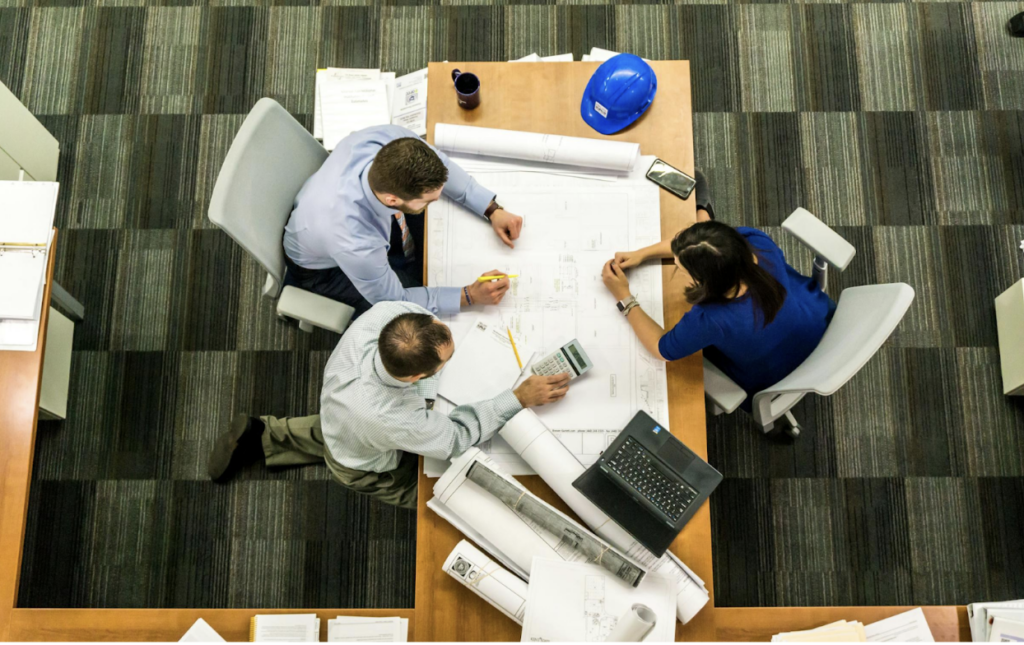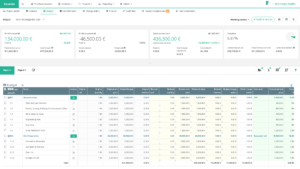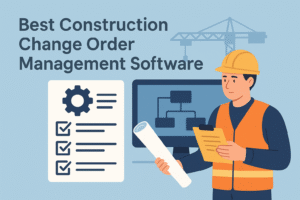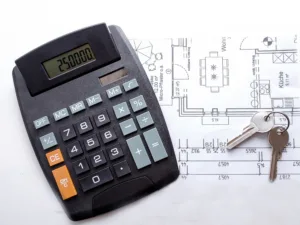Most people will see construction as complex and costly, but it doesn’t have to be.
Successful construction projects begin with a clear understanding of the essential steps in building structures like houses and commercial buildings. We’ll examine those steps and all the non-negotiables at every phase. Let’s dive in.
7 Essential Steps for Construction Projects
Here’s a dive into each step of a successful construction project, and what you should do during these phases.
1) Project Conception
This initial phase of a construction project is crucial, yet it’s often rushed by teams, putting the whole project at risk. Good planning will start with clearly defining the project’s purpose, scope, and objectives.
Clients and construction teams should identify the needs the project will address and establish preliminary goals. This stage sets the foundation for all the other phases.
2) Design and Planning
In this phase, architects and engineers should develop detailed plans and designs for the project. Regardless, shortcuts in this part of the process will also lead to more costs, delays, backjobs, and possibly even structural integrity issues.
This is also the phase when cost construction management comes into play. You’ll need to work together to estimate costs, set budgets, and schedule resources. Effective management at this part of the process helps control expenses, so that the project project meets financial constraints and regulatory standards.
3) Pre-construction
Before construction begins, you must have a pre-construction phase to hire contractors. You can also take this time to finalize your project plans and complete the necessary permits.
Finding possible hazards and laying a sound basis for the project depends on the pre-construction stage. Think about the degree of knowledge needed while building your team—do you need an experienced professional or would someone with the least expensive engineering degree be sufficient? Both project quality and price might be much affected by this choice.
Although hiring someone with the cheapest engineering degree could temporarily cut expenses, it is important to consider the trade-offs regarding knowledge and long-term project success. While choosing a more reasonably priced solution could work in some situations, experience and more qualifications could be more helpful for challenging jobs.
Keep in mind that professional fees will increase with more experience and expertise.
4) Material Procurement
This step focuses on acquiring all the materials and equipment needed for the construction. It’s crucial to manage construction project costs during this phase. Some key benchmarks of success in this part are to secure the best prices and ensure timely delivery of materials. Doing so will help you avoid construction delays and stay within budget.
5) Construction
This part of the process involves the actual construction. There are many sub-phases that you’ll need to be aware of, including:
- Site Preparation. Clearing the land of any obstacles, such as trees, rocks, or existing structures, and leveling the site as necessary. Depending on the project, this might also include excavation for foundations or utility installation.
- Infrastructure and Utility Setup. Laying pipes and cables, setting up temporary power supplies, or improving access roads for all utilities and infrastructure to smoothly operate.
- Safety and Security Measures. Fencing off the site, setting up signage and barriers, and implementing safety protocols to protect workers and the public.
- Foundation and Structural Work. Pouring foundations, constructing the building frame, and completing other structural elements.
- Building Envelope and Exterior Construction. Once the structure is up, work begins on the building envelope, including walls, roofing, windows, and doors.
- Interior Construction and Finishes. Electrical wiring, plumbing, insulation, drywall installation, painting, and flooring. Finishing touches, such as fixtures, cabinetry, and other decorative elements, are also applied.
- Systems Installation. Mechanical, electrical, and plumbing systems, such as HVAC systems, lighting, water systems, and fire safety equipment, are installed and tested.
- Quality Control. Monitoring the quality of materials, workmanship, and adherence to design specifications.
All these steps should happen for your construction project to succeed while also maintaining compliance with plans, codes, and safety regulations. Effective management and coordination among the construction teams are vital to keep the project on track.
6) Project Closeout
This phase occurs once the main construction activities have been completed. It includes thorough inspections, resolving any deficiencies, finalizing contractor payments, and preparing the project for handover. Documentation of the entire project is also completed during this stage.
7) Post-construction
After the project is handed over, this final step involves evaluating project performance, ensuring all contractual terms have been met, and addressing any remaining issues like warranties and maintenance. It’s also a time for reflecting on what was learned during the project to improve future construction practices.
Getting a Handle on Your Budget
Keeping a construction project is what ties together the entire project lifecycle. Here are some practical tips to help manage construction project costs effectively:
- Contingency Budget — Include a contingency budget to cover unexpected costs. Typically, this is around 5-10% of the total budget. Having this buffer can save you from having to find additional funds mid-project.
- Value Engineering — This process involves examining the design features, materials, and methods to identify opportunities for cost savings without compromising quality. Consider alternative solutions that offer the same functionality at a lower cost.
- Skilled Project Management — Hire a project manager with the skills and experience needed to oversee complex budgets and schedules. A competent project manager can make a significant difference.
When handling your construction budget, using a budget management tool will help you keep your expenses at bay. We recommend using Bauwise to do this. Many construction companies and teams use it and have experienced more success in their construction projects. Go ahead and try it out and see the difference it makes.






